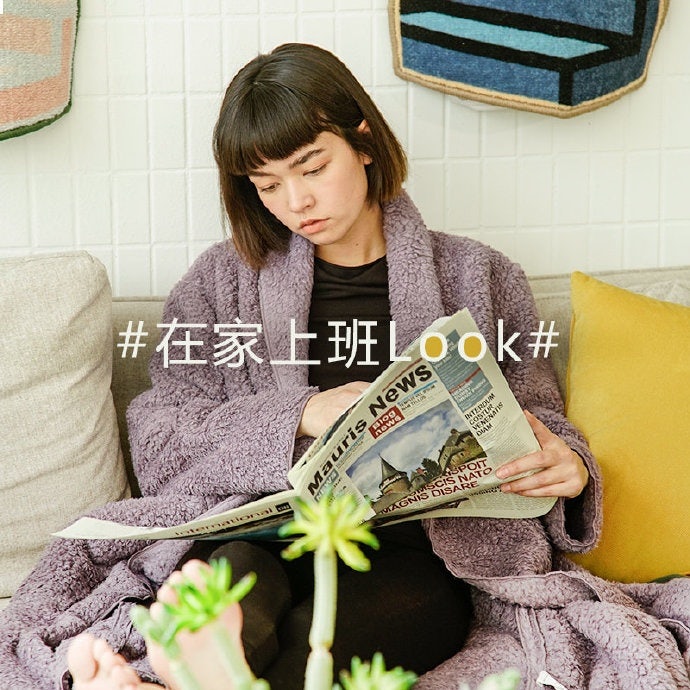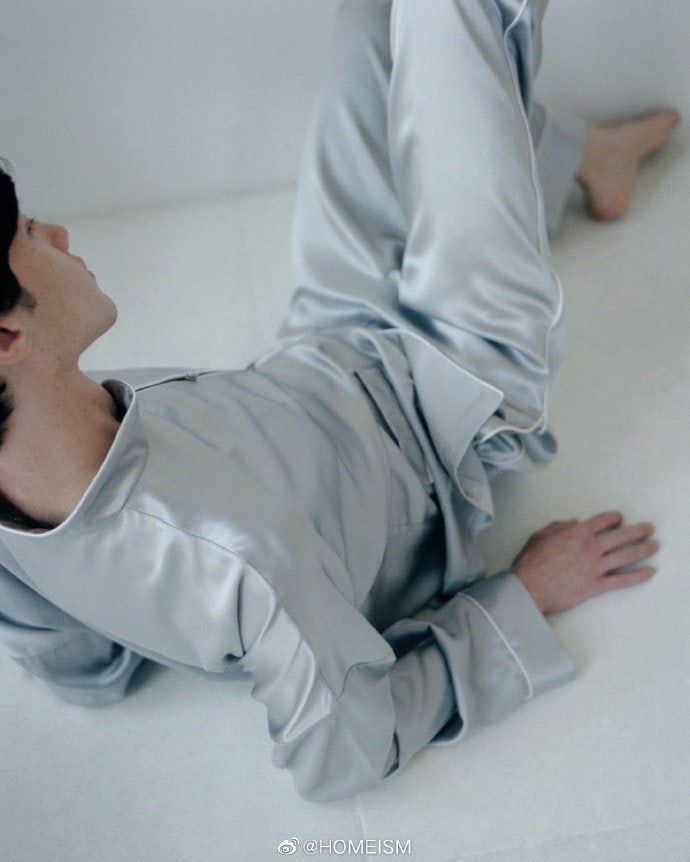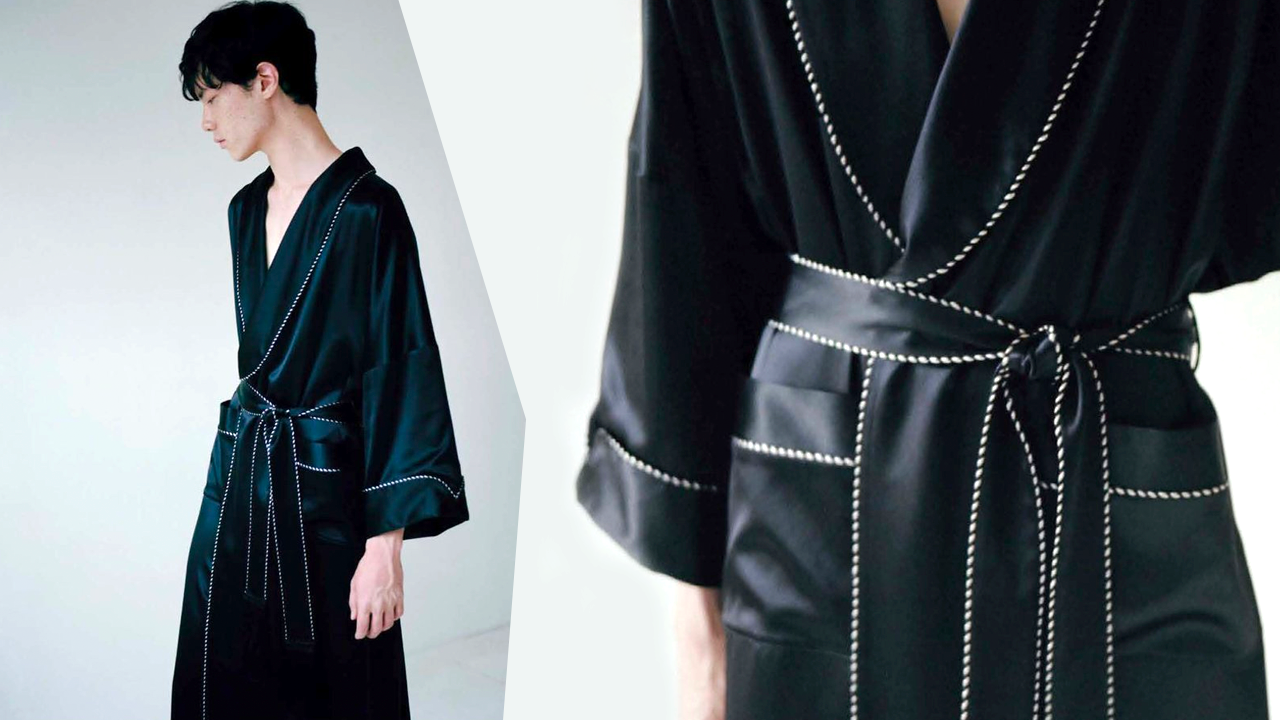Across the globe, life is changing, and we are seeing the emergence of a COVID-19 economy. While China is slowly going back to normal as residents outside of the worst-hit Hubei province start to venture out again, many citizens have rediscovered the joy of staying home. Two months of quarantine have fostered a strong stay-inside culture, especially among the millennial population who were once living their entire lives outside by strolling malls and eating out. While this sounds like bad news for most luxury and fashion players, one very specific outfit has infiltrated all corners of young, affluent Chinese' recent wardrobe: the homeleisure wear.
Starting from late January when China halted all CNY-related festivities to stop the spread of COVID-19, homeleisure has reached unexpected stardom across social media. On the micro-blogging site Weibo, #OnePajamaForTheWholeCNY topped the site's most searched hashtags during the CNY period as Chinese youngsters shared themselves wearing pajamas instead of the outfits originally planned for the celebration.
Soon, as more stay-home millennials searched for ideas to up their pajama game, the acceptance of stay-in apparel that could pass for the work video-conference has grown. In February alone, home-fashion community hashtags such as #StayInFashionGuide and #StayInPajamaContest amassed hundreds of thousands of online participations. Some of the most influential voices in fashion's upper echelon, like top-tier KOL Becky Li and media like Vogue China, published stay-in style manuals on WeChat, guiding their massive followings to endorse the act of living stylishly at home.
Homegrown brands targeting China's trend-conscious groups have acted quickly to the craze with creative marketing. Lifestyle brand The Beast hosted a share-your-pajama initiative on Weibo and a “pajama + facial masks” promotional package via WeChat e-shop. Lingerie brand Neiwai pushed home-gym virtual classes across social channels, astutely repositioning its activewear line into multi-purpose home wear.
Premium loungewear brand Dodococo hosted a #WorkFromHome outfit contest while launching a Spring home leisure collection with bold colors and vibrant design. Attempts to bring all kinds of looks previously worn outside the home indoors, is a common thread among these crisis-agile Chinese labels.

However, consumers' current thirst for feel-good home wear isn't a temporary thing provoked by the COVID-19 crisis. Young Chinese professionals have embraced the “work hard, spend harder” motto for years, as they actively experiment with personal identities through fashion, work, and curated home environments with social media-worthy visuals.
While home ownership becomes an increasingly unattainable goal in China's top-tier cities, a carpe diem attitude is now common. Statements such as, “your apartment is rented, but your life is not” have gone viral among millennial networks, fueling the consumption of interior design pieces, ambiance fragrances, and other spirit-boosting objects for the home.
In addition, the improbable possibility of future home ownership, coupled with the promise of a flexible career, and increasingly digital dependence are all contributing factors to more youngsters choosing to “stay in” over “going out.” Today, the two-month-long social distancing enforced by the state has urged them to redirect spending further to enhance the pleasure of being at home.
In fact, this has already been grasped by millennials around the world who have been reportedly spending more time at home than previous generations simply because going out is too much work.
Licheng Ling, a NYC-based Chinese designer and founder of luxury loungewear brand Homeism, told Jing Daily that the brand's Chinese clientele exceeds American. “In comparison, China's young generation pays more attention to the quality of life in different aspects. They care about the attitudes a brand embodies and want to get the best in their affordability range,” Ling said.
Her brand's Chinese-culture-inspired flowery lounge sets aim to blur the lines between casual chic and lazy wear is perfect for a generation that increasingly blends work, sleep, play in the same place — their home.

For Ling, multi-purpose home wear is a solution to the fashion industry's slow future, both in terms of production processes and consumer’s behavioral change. “Well-made loungewear can be worn outside the house if you style it well. Compared to most ready-to-wear garments that cause large amounts of waste, loungewear is a better choice for the environment,” she continued.
The designer also sees the pandemic as a prophetic reminder for us to, no matter where we are, adopt a slower way of life, adding: “The crisis today is letting consumers be more aware of their stay-in quality of life, and homeleisure wear is the symbol of that slow lifestyle.”
In a global moment of self-quarantine and social distancing, staying in is officially the new going out. Even in China, where the virus has stabilized compared to the rest of the world, most people are still advised to practice social distancing and go out only when wearing a surgical mask.
As athleisure swept the industry a few years ago, the evolution of home leisure has started today in no small way. Both overlapping trends are manifestations of the same message — in the modern age, personal comfort is above everything else. While the home leisure trend sounds like a temporary crisis-driven need, it speaks to a greater desire around the world to find comfort in a time of uncertainty and distress. And, it's time for luxury and fashion brands to rethink their strategies and adapt to consumers’ new realities.
